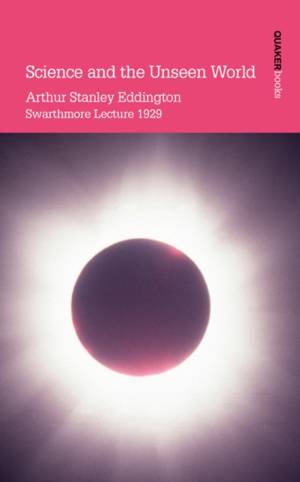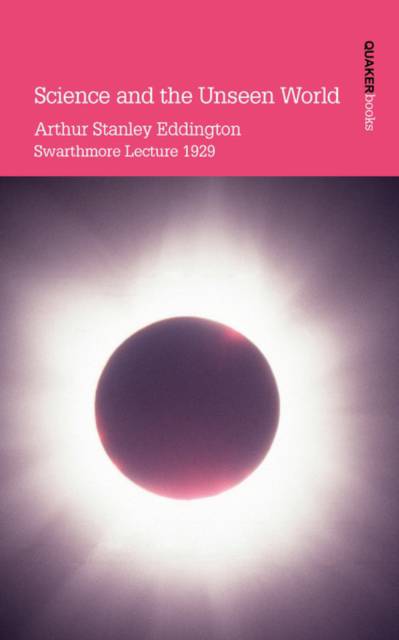
- Afhalen na 1 uur in een winkel met voorraad
- Gratis thuislevering in België vanaf € 30
- Ruim aanbod met 7 miljoen producten
- Afhalen na 1 uur in een winkel met voorraad
- Gratis thuislevering in België vanaf € 30
- Ruim aanbod met 7 miljoen producten
Zoeken
Omschrijving
Physicist and astronomer Arthur Eddington tested Einstein's Theory of Relativity at an eclipse in 1919. A lifelong Quaker, his 1929 Swarthmore Lecture explores how science and religion define and look at reality. 'You will understand the true spirit neither of science nor of religion unless seeking is placed in the forefront.' 'He puts a strong line against simplistic reductionism in relation to our minds . He emphasizes that when we ask the question, "What are we to think of it all? What is it all about?", the answer must embrace but not be limited to the scientific answer. His lecture explores this in a delightful way, that remains fully relevant today.' - Prof. George Ellis 'The attitude of the scientist, here so admirably explained, is the attitude, also, of the mystic. Experience, to both, is what matters most."'- The Sufi Quarterly, 1929.
Specificaties
Betrokkenen
- Auteur(s):
- Uitgeverij:
Inhoud
- Aantal bladzijden:
- 56
- Taal:
- Engels
Eigenschappen
- Productcode (EAN):
- 9780901689818
- Verschijningsdatum:
- 5/01/2007
- Uitvoering:
- Paperback
- Formaat:
- Trade paperback (VS)
- Afmetingen:
- 127 mm x 203 mm
- Gewicht:
- 68 g

Alleen bij Standaard Boekhandel
+ 27 punten op je klantenkaart van Standaard Boekhandel
Beoordelingen
We publiceren alleen reviews die voldoen aan de voorwaarden voor reviews. Bekijk onze voorwaarden voor reviews.








